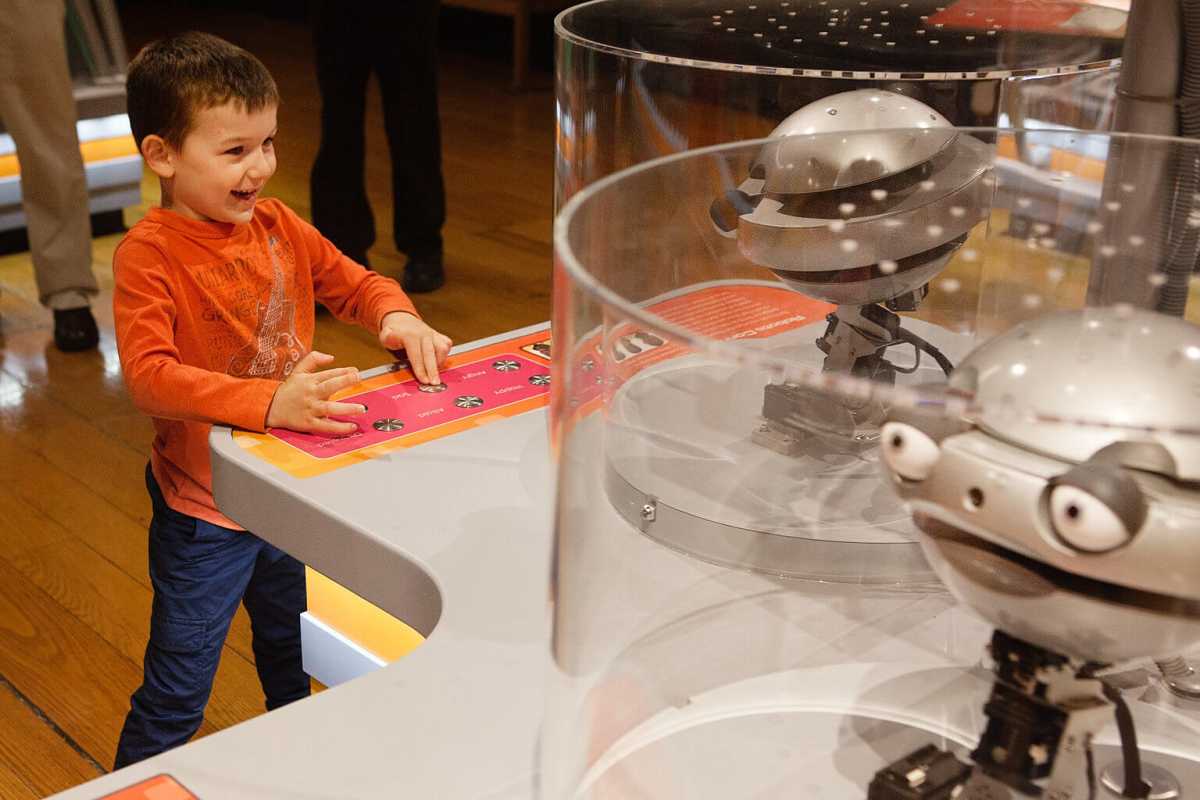The future isn’t coming. It’s already here, and it has arrived at Philadelphia’s Franklin Institute with the Robot Revolution exhibit. The visionary collection features a wide assortment of robots, curated from universities and global robotics companies. Many of them are available for interaction with the museum’s guests. This all comes bearing innovation in an imperative fashion: the helping hand. The future of robotics will be one that integrates assistance and aid in numerous ways. The exhibit claims that, according to the Franklin Institute’s website, “from self-driving cars to surgical assistance, from scientific research to search and rescue missions — robots are here to help ease and improve our lives.” How that is happening may not be so clear in the popular eye, which makes this an important exhibition. Pop culture, from film and television to literature, has often portrayed the advent of robotics in human culture as a negative one. The Robot Revolution exhibit quickly dispels archaic conspiracy theories or scare tactics. Robots are here to help. Move all the silly misconceptions aside. Robot Revolution is a hands-on experience of how robotics has become a vital asset into humanity, with an inside look at how it will manifest its helping hand in the near future. The exhibit is sorted into four “areas:” skills, smarts, cooperation and locomotion. Visitors can see the ROBOTIS-OP, a robot that uses face-tracking software to sense when you’re looking at it and can recognize and interact with other objects — like kicking a soccer ball. Similarly, there’s EMYS, a robot that can express emotions through its Facial Action Coding System. PARO is a baby seal robot that uses touch therapy to help medical patients heal and recover physically and emotionally. LiDAR is a robot that contains sensors that work with a car and allows it to “see” the physical world and assist in driving. Baxter plays tic-tac-toe with its human opponents. There’s also Maneuver Rhex, the all-terrain crawling robot, developed locally at the University of Pennsylvania. With 40 robotics to check out at the exhibit, the revolution is a helpful one. Visitors will get to experience how to learn, interact and play along with robots.
The exhibit runs through to April 2. Cost of admission varies between $25-$30 during daytime visits, and $15-$20 for weekend evening visits (Thursday-Saturday) for children and adults. Find out more about the exhibit by visiting the Franklin Institute’s website at fi.edu.






























